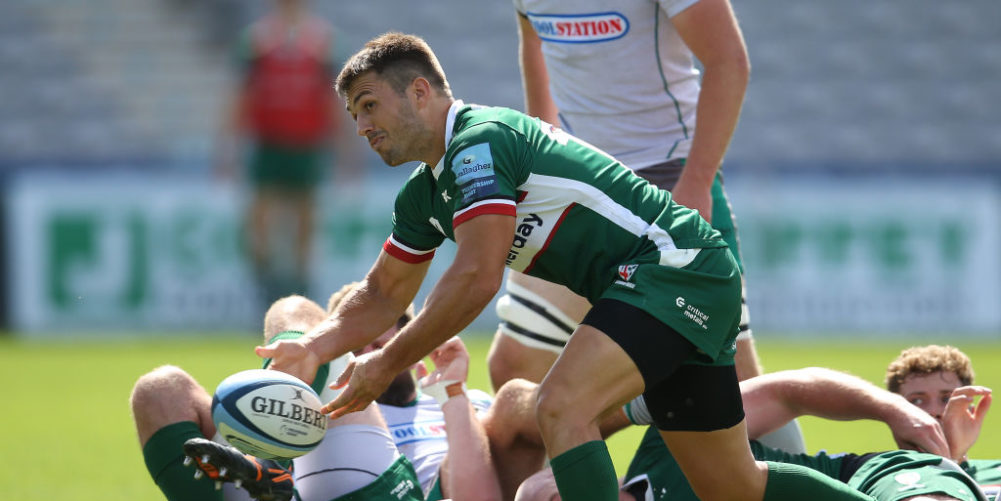I don't believe the breakdown changes that we have seen at the restart of this season are revolutionary, although they are very welcome. We tend to forget that in years gone by some refs allowed you to handle on the ground and also flop over the ball without being penalised. Thank goodness that's no longer the case.
One of the aspects of these changes that I like most is that referees are taking the initiative, rather than listening to other voices, whether broadcasters or coaches, about the need for a more entertaining game.
Rugby Union's laws should not be bent towards the altar of entertainment if it means making it a game that is unrecognisable from what it was. The game has evolved over many years, and its shape and main principles are tried and tested, and we should respect that.
The thinking behind this breakdown refocus is to make the jackler more protected by stopping the clearers from diving over the top or coming in at the side. At the same time, referees will also play their part by whistling quickly for a penalty if there is no release by the carrier when the jackler is on his feet and lifting the ball.
However, that's the way the law should always have been applied – although, for whatever reasons, referees did not always do so.
That's why it is not revolutionary, but an important reminder of the breakdown laws as they should be refereed. For example, coming in at the side is illegal, and always has been. The same is true of diving-in off your feet to seal-off the ball, instead of staying on your feet so you are in a crouch-and-bind stance over the ball.
After watching Exeter play Leicester at Sandy Park it's fair to say that the Chiefs pick-and-go technique remains extremely effective. The legality of the pick-and-go has always attracted a fair amount of comment, because when the ball carrier falls after being tackled, or driving for the line, then the supporting players who are bound on to him also fall – and often appear to seal-off the ball.
It all depends on your vantage point, but Exeter were much more efficient than Tigers at the breakdown, and because they are so comfortable in the way they play there was a big gap in the penalty count.
Leicester conceded 22 penalties, many of them because of problems at the breakdown, whereas Exeter were just over half that.
The lockdown and strict refereeing does not seem to have had much of an effect on Exeter, and their win over the Tigers was pretty conclusive. However, we will not know how well teams adapt until they have to play three games in ten days, which is what the Chiefs will have done by the time they play Bristol on Tuesday.
The stakes are high, because if you don't adapt to the refereeing changes, then your team loses.
Overall, I embrace the change in attitude by referees. The breakdown is the biggest difference between Rugby Union and Rugby League, and it should not only be a contest for the ball, but also a fair contest.
The correct application of the breakdown laws demands better technique from players, whether they are attacking or defending. It demands better support for the ball-carrier by the attacking team to prevent them being isolated. It requires the support players to stay on their feet, and not to appear uncontrolled or reckless.
If they do their job to a high enough standard they can cut out the influence of the defending side's jacklers. However, if they are too loose a jackler can get onto the carrier in a flash, and if he can lift the ball for one or two seconds it will be enough for the referee to allow either a turnover, or to award a turnover penalty if the carrier fails to release.
These are great contact skills, and that's why referees are right to put the emphasis back on them by penalising players using their hands to sweep the ball back, or entering from the side, or diving-in off their feet.
The contest for possession at the breakdown means there may be less phase play because the attacking side have to commit more players to winning the ball. The harder they have to work to build phases, the more open the game, with opportunities and space for the defensive side to counter-attack.
There may be some criticism of referees, but they should tough it out for the benefit of the game. Refs are human, so there will be inconsistencies, and we should be tolerant because when you look at the TMO system in rugby, or VAR in football, the footage is often nowhere near as ‘clear and obvious' as it should be. Instead, what seems clear to some, is not obvious to others.
It's still early days after the restart, but it's made me realise how much I've missed live rugby. Although I've been slightly disenchanted by people failing to understand how much a reduction in substitutions would open up the game and make it more of a contest of skill and fitness, even without a crowd I enjoyed my trip to Sandy Park.
There was still a bit of an atmosphere because of the staff working for the Chiefs, but although people are rightly saying we should get the crowds back, it will have to be done smartly, bit by bit, because 10,000 in a ground is very different logistically to 1,000.
It took the Kiwis a bit of time to get used to the new breakdown in Super Rugby Aotearoa, but their game is different to everyone else, because the skill levels are higher. It will probably take the Premiership clubs a little longer to adapt, but the quicker they do so the better. I believe we are heading in the right direction.


























